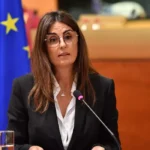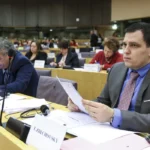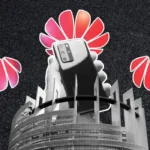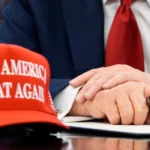Dubai, known for its towering skyscrapers and luxurious lifestyle, has rapidly emerged as a major player in the global gold trade over the past few decades. Despite being a relatively new entrant, Dubai has employed innovative strategies to capture untapped markets and cut corners to bring gold into the market. This article delves into Dubai’s journey as a gold trading hub, its controversial sourcing methods, and the role of the Dubai Multi Commodities Centre (DMCC) in regulating this booming industry.
Dubai’s Gold Trade Transformation
In 2018, the United Arab Emirates (UAE) made a significant mark in the world gold trade, showcasing the success of its unconventional strategy. To put this into perspective, in 1996, the UAE was not even among the top 100 gold-importing countries. However, within two decades, it had risen to the top four, surpassing traditional players like Hong Kong and the United States. Dubai, in particular, has emerged as the heart of this transformation, housing the majority of the UAE’s eleven gold refineries.
Dubai’s dominance in the UAE’s gold trade is staggering, accounting for about 80 percent of the total gold imports and exports by volume or value, as reported by the DMCC. This meteoric rise raises questions about the sources of Dubai’s gold and the ethical concerns surrounding its procurement.
The Ethical Dilemma: Sourcing Gold from Artisanal Mines
What makes Dubai’s gold strategy particularly controversial is the source of its gold. Traditional gold hubs primarily rely on a handful of countries or major gold-producing nations. In contrast, Dubai sources its gold from over one hundred countries, many of which engage in artisanal and small-scale gold mining (ASGM). ASGM is characterized by low capital investments, traditional technologies, reliance on labor, and weak or nonexistent government regulation.
However, ASGM is often linked to issues such as illegal armed groups, human rights violations, and smuggling in some regions like the Democratic Republic of Congo, Sudan, and Venezuela. Due to these concerns, ASGM gold is sometimes labeled as a “conflict mineral.” Various standards, including OECD guidelines, require countries to determine the origins of ASGM gold to prevent its association with conflict or human rights abuses.
Dubai, in practice, follows very few, if any, of these standards. ASGM gold is routinely sold in Dubai’s bustling gold souk, where minimal due diligence is required. Gold dealers only demand a UAE customs form, which does not specify the gold’s origin. This lax approach allows gold from any country, regardless of its production circumstances, to flow into Dubai’s market without scrutiny.
This lack of due diligence has contributed significantly to Dubai’s rise as a global gold hub. The city accepts ASGM gold from countries that more respectable hubs avoid due to adherence to stringent standards. Analysis reveals that a substantial portion of the UAE’s gold supply originates from countries labeled as “red-flagged” by the OECD.
Dubai’s Role in Gold Laundering
Dubai’s unique position as a conduit for ASGM gold from red-flagged sources is concerning. Gold from conflict-affected regions, like the Democratic Republic of Congo and South Sudan, is often trafficked through Dubai, obscuring its true origin. This process effectively launders illicit ASGM gold into a refined product acceptable to the world’s most reputable gold hubs, including Switzerland and India.
Another significant portion of UAE gold is exported as jewelry to developed countries, where laws and regulations should theoretically prevent the import of problematic gold. However, the UAE exported significant quantities of gold jewelry to countries like the United States, Italy, the UK, and Germany, which have legislation regulating the import of gold from conflict-affected areas.
In 2016, Dubai imported over 971 tons of gold worth around $32 billion, with nearly half of it originating from red-flagged sources. Simultaneously, it exported 846 tons of jewelry and gold combined, worth $28 billion, to countries subject to strict conflict minerals laws. This paints a stark picture of Dubai’s role as a hub for laundering ASGM gold.
The DMCC: A Toothless Watchdog?
Established in 2002, the DMCC plays a dual role in regulating and promoting the precious metals and gems sector in Dubai. However, this dual role creates an inherent conflict of interest. While the DMCC has introduced standards like the Dubai Good Delivery (DGD) and Due Diligence Rules, compliance remains voluntary.
Only three of the eleven refineries in the UAE have achieved DGD compliance, leaving the majority operating without independent sourcing checks. The credibility of local audit processes is questionable, as evidenced by allegations of collusion between international auditing firm Ernst and Young, Kaloti Jewelry International, and the DMCC to conceal the sourcing of gold from high-risk or unknown sources.
Moreover, Dubai-based refineries frequently trade with each other, further complicating global supply chains. The absence of transparency in the buyer-seller relationships raises concerns about the DMCC’s role in legitimizing gold from high-risk sources.
The Need for Transparency and Accountability
Dubai’s rapid ascent in the global gold trade is remarkable but comes at a significant ethical cost. The city’s lax approach to sourcing, coupled with the DMCC’s voluntary standards, has made it a hub for laundering ASGM gold from conflict-affected areas. To uphold ethical standards and global regulations, Dubai must prioritize transparency and accountability in its gold trade. Only then can it maintain its status as a legitimate global gold hub without sacrificing ethical integrity.






